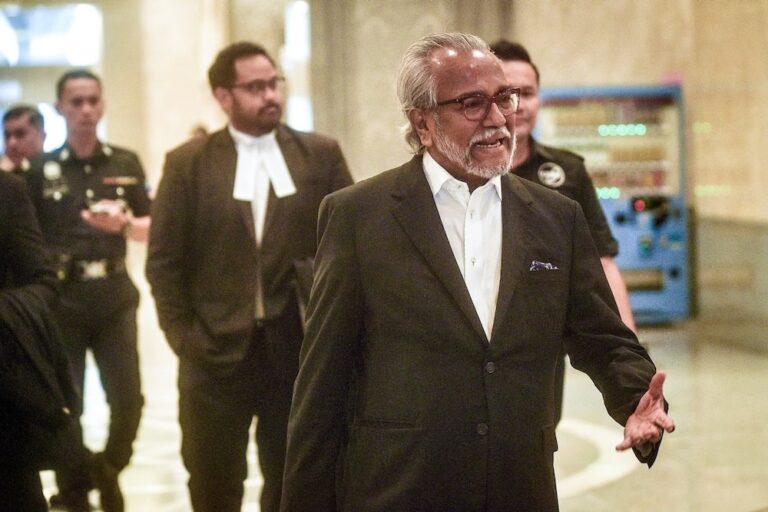(RSF/IFEX) – In a 6 January 2000 letter to Minister of Home Affairs Datuk Seri Ahmad Badawi, RSF expressed its concern after five newspapers were threatened with closure. RSF asked the minister to “ensure that the publication licences of the newspapers are not withdrawn by the ministry.” RSF condemned “any pressure on the private media,” […]
(RSF/IFEX) – In a 6 January 2000 letter to Minister of Home Affairs Datuk Seri Ahmad Badawi, RSF expressed its concern after five newspapers were threatened with closure. RSF asked the minister to “ensure that the publication licences of the newspapers are not withdrawn by the ministry.” RSF condemned “any pressure on the private media,” noting that “the closure of one of those newspapers would constitute a grave violation of press freedom.” RSF also called on the minister to “liberalise the press laws, for example the Printing Press and Publications Act, which requires newspapers to renew their publishing licences annually.”
According to RSF’s information, five private newspapers are currently threatened by the Home Affairs Ministry with the withdrawal of their publishing permits. Such measures could lead to the closure of the newspapers, some of which are close to opposition parties.
On 24 December 1999, the ministry announced that the biweekly “Harakah”, published by the Islam se-Malaysia Party (PAS, Islamist), had until 8 January to limit its sales to party members only. On 22 December, the ministry prohibited the sale of “Harakah” at news-stands. At the same time, the ministry announced that it was necessary “to investigate thoroughly” before renewing the permit of the private bimonthly “Detik”. This “administrative slowness” has already prevented the publication of three copies of “Detik” since December. The director of the bimonthly is accused by the authorities of failing to respect the conditions of his publishing permit. He was also reproached for appointing a chief editor who was not favourable to the government.
On 24 December, the ministry also warned the two monthlies “Wasilah” and “Tamadun” that they could face sanctions if they did not respect the conditions of their licences. “Wasilah” was ordered to publish with its full name – “Al Wasilah” – as stipulated in its permit. “Tamadun”, accused of supporting opposition parties, could also be penalised. Finally, two weeks after the general election of November 1999, “Eksklusif” received a warning letter from the authorities. According to the government, the publication’s journalists had been “spreading rumours.”


